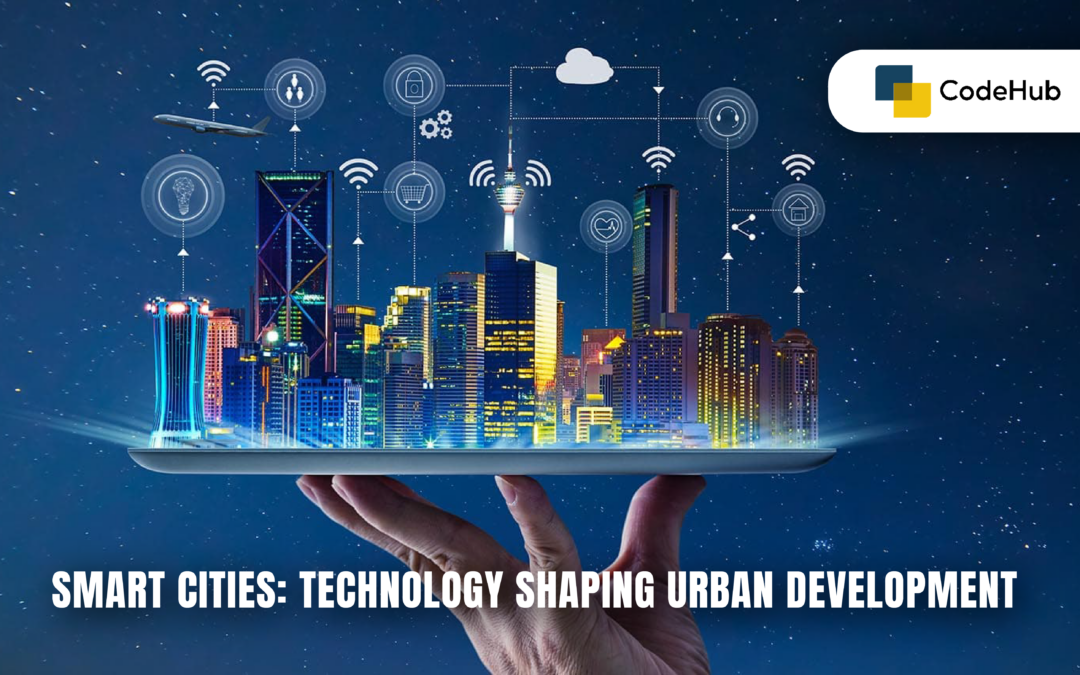Introduction
As urban populations continue to grow, cities worldwide are adopting smart technologies to address various challenges, enhance the quality of life for residents, and create sustainable, efficient urban environments. Smart cities leverage advanced technologies such as the Internet of Things (IoT), artificial intelligence (AI), big data analytics, and more to improve infrastructure, optimize resources, and provide innovative services. This blog post explores how technology is shaping urban development, the benefits of smart cities, and the key technologies driving this transformation.
The Concept of Smart Cities
A smart city uses digital technologies to improve the efficiency of services and meet residents’ needs. By collecting and analyzing data from various sources, smart cities can optimize urban operations, enhance public safety, reduce environmental impact, and foster economic growth. The integration of technology in urban development aims to create a more livable, resilient, and sustainable environment.
Key Technologies Driving Smart Cities
Internet of Things (IoT)
IoT is at the heart of smart city development. IoT devices, such as sensors and connected infrastructure, collect real-time data on various aspects of urban life, including traffic flow, air quality, energy consumption, and waste management. This data enables city officials to make informed decisions, automate processes, and improve service delivery.
Applications of IoT in Smart Cities:
- Smart Traffic Management: IoT sensors monitor traffic conditions and optimize traffic light timings to reduce congestion.
- Smart Energy Grids: Connected devices manage energy distribution efficiently, reducing wastage and promoting renewable energy usage.
- Smart Waste Management: Sensors in waste bins alert sanitation workers when they need to be emptied, optimizing waste collection routes.
Artificial Intelligence (AI) and Machine Learning
AI and machine learning algorithms analyze the vast amounts of data generated by IoT devices. These technologies can predict trends, identify patterns, and provide actionable insights to improve urban management.
Applications of AI in Smart Cities:
- Predictive Maintenance: AI predicts when infrastructure components, such as roads and bridges, need maintenance, preventing costly repairs and ensuring safety.
- Public Safety: AI-powered surveillance systems detect unusual activities and respond quickly to potential threats.
- Healthcare: AI analyzes health data to predict outbreaks and optimize resource allocation.
Big Data Analytics
Big data analytics involves processing and analyzing large datasets to extract meaningful insights. In smart cities, big data analytics helps in making data-driven decisions, improving operational efficiency, and enhancing service delivery.
Applications of Big Data Analytics in Smart Cities:
- Urban Planning: Analyzing data on population growth, migration patterns, and land use helps in designing better urban spaces.
- Resource Management: Optimizing the use of water, energy, and other resources based on consumption patterns.
- Citizen Engagement: Analyzing social media and other communication channels to gauge public sentiment and improve community services.
Blockchain
Blockchain technology ensures transparency, security, and efficiency in various urban processes. Its decentralized nature makes it ideal for managing sensitive information and transactions.
Applications of Blockchain in Smart Cities:
- Identity Management: Securely storing and managing citizens’ identities and personal data.
- Supply Chain Transparency: Ensuring transparency and traceability in the supply chain, from food production to delivery.
- Smart Contracts: Automating and securing transactions in real estate, public procurement, and other sectors.
Benefits of Smart Cities
Enhanced Quality of Life
Smart technologies improve the quality of life for urban residents by providing efficient services, reducing pollution, and enhancing public safety. Smart transportation systems reduce commute times, while smart healthcare services offer timely medical assistance.
Sustainability and Resource Efficiency
Smart cities prioritize sustainability by optimizing resource use and reducing waste. Smart grids, water management systems, and waste management technologies minimize environmental impact and promote the use of renewable resources.
Economic Growth
The adoption of smart technologies fosters innovation and attracts investment, driving economic growth. By creating a favorable environment for startups and tech companies, smart cities generate job opportunities and boost local economies.
Improved Public Services
Smart cities offer improved public services through data-driven decision-making. From efficient public transportation to responsive emergency services, smart technologies enhance the overall functionality of urban areas.
Challenges and Considerations
Data Privacy and Security
The collection and analysis of vast amounts of data raise concerns about privacy and security. Smart cities must implement robust cybersecurity measures and data protection regulations to safeguard citizens’ information.
Interoperability
Integrating various technologies and systems can be challenging. Ensuring interoperability between different platforms and devices is crucial for the seamless functioning of smart city infrastructure.
Cost and Implementation
The initial investment required for smart city infrastructure can be substantial. Cities must carefully plan and prioritize projects to ensure cost-effective implementation and long-term sustainability.
Conclusion
The transformation of urban areas into smart cities represents a significant step forward in addressing the challenges of modern urbanization. By leveraging advanced technologies such as IoT, AI, big data analytics, and blockchain, smart cities can enhance the quality of life, promote sustainability, and drive economic growth. However, successful implementation requires careful consideration of data privacy, interoperability, and cost factors. As cities continue to evolve, the adoption of smart technologies will play a crucial role in shaping the future of urban development, creating more livable, resilient, and sustainable environments for residents worldwide.

